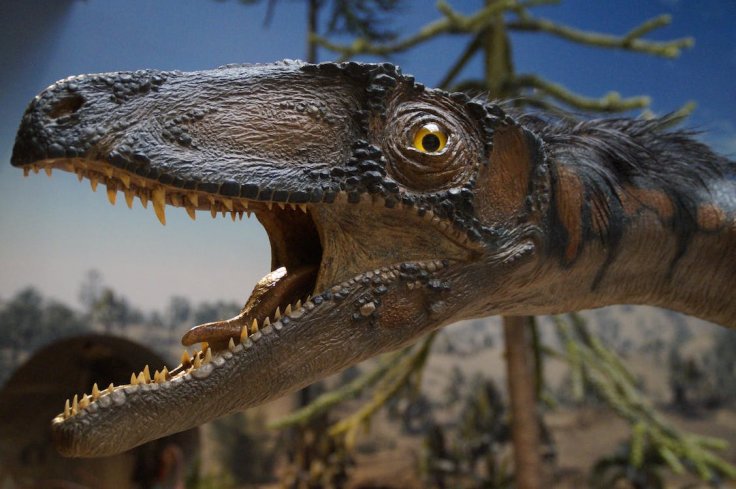Many dinosaur species have been known to be carnivorous but scientists have never really seen what was inside the gigantic creatures gut until now.
A researcher found a small mammal, actually a mammal's foot preserved inside the guts of a fossilized Microraptor zhaoianus, a feathered therapod less than three foot long. Hans Larsson, a professor of biology at McGill University's Redpath Museum in Montreal, came across the fossil while visiting collections in China.
"At first, I couldn't believe it. There was a tiny rodent-like mammal foot about a centimetre long perfectly preserved inside a Microraptor skeleton," he said. "These findings are the only solid evidence we have about the food consumption of these long extinct animals and they are exceptionally rare."
The research highlighted that this was only the 21st known example of a fossilized dinosaur, that had its last meal preserved.

Dinosaurs Were Not Picky Eaters
Larsson pointed out that it's rarer still to find that a mammal was on the menu. "We already know of Microraptor specimens preserved with parts of a fish, a bird and a lizard in their bellies. This new find adds a small mammal to their diet, suggesting these dinosaurs were opportunistic and not picky eaters."
The study's co-author explained that Microraptor was a generalistic carnivore. He said new evidence puts a new perspective on how ancient ecosystems may have worked. It also gives insight into the success of the small, feathered dinosaurs.
The Microraptor, as per the research, is the first known example of a generalist carnivore in a dinosaur era. Its fossil was discovered in rich fossil deposits in Liaoning in northeastern China in the early 2000s. The specimen features plumage on its arm wings and legs. It was one of the first featured dinosaurs to be unearthed.
Dr David Hone, reader in zoology at Queen Mary University of London, believes they can look back at some of humans ancient relatives being a meal for hungry dinosaurs. He said the study gives a peek of a fascinating moment in time.









